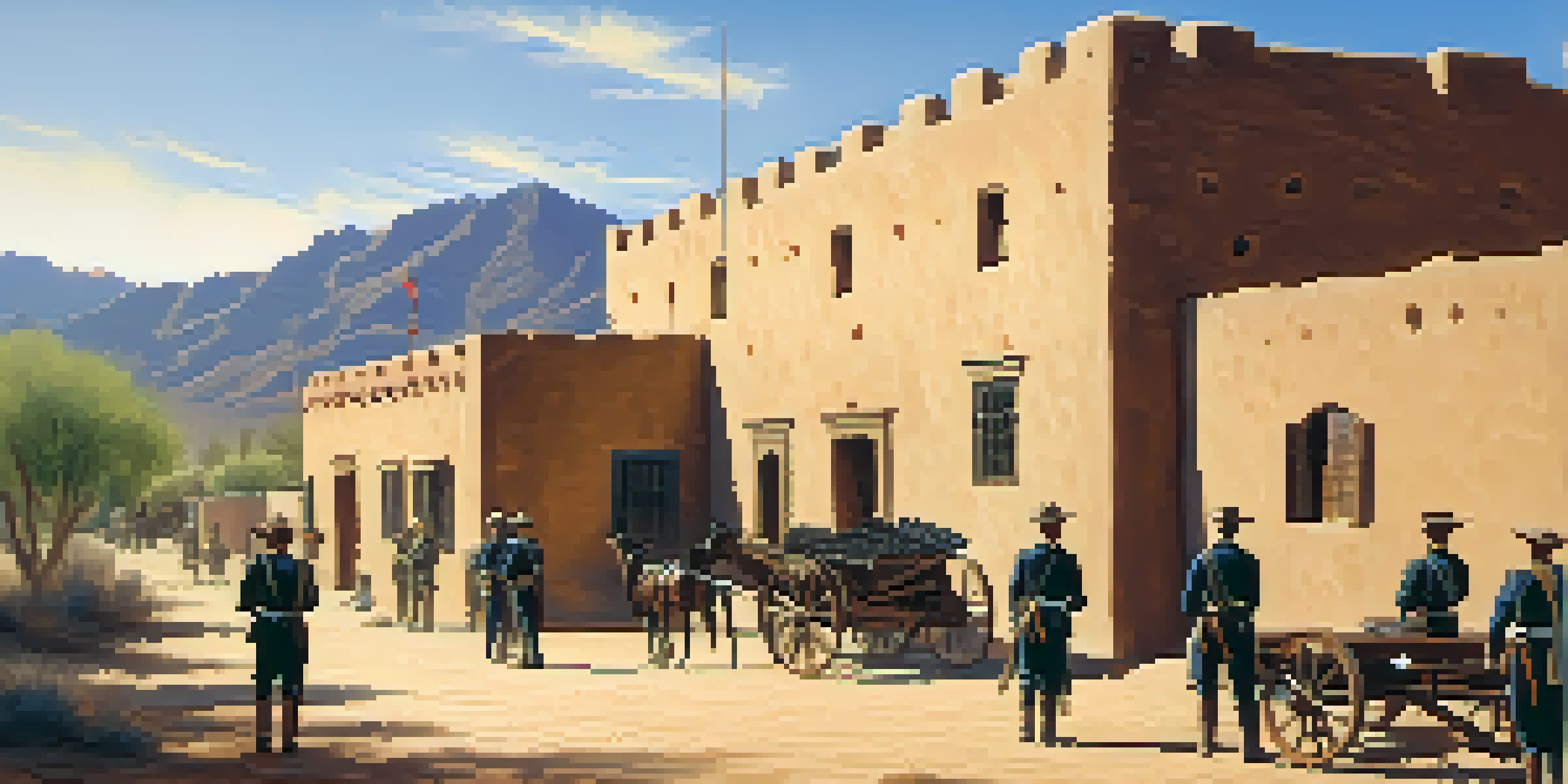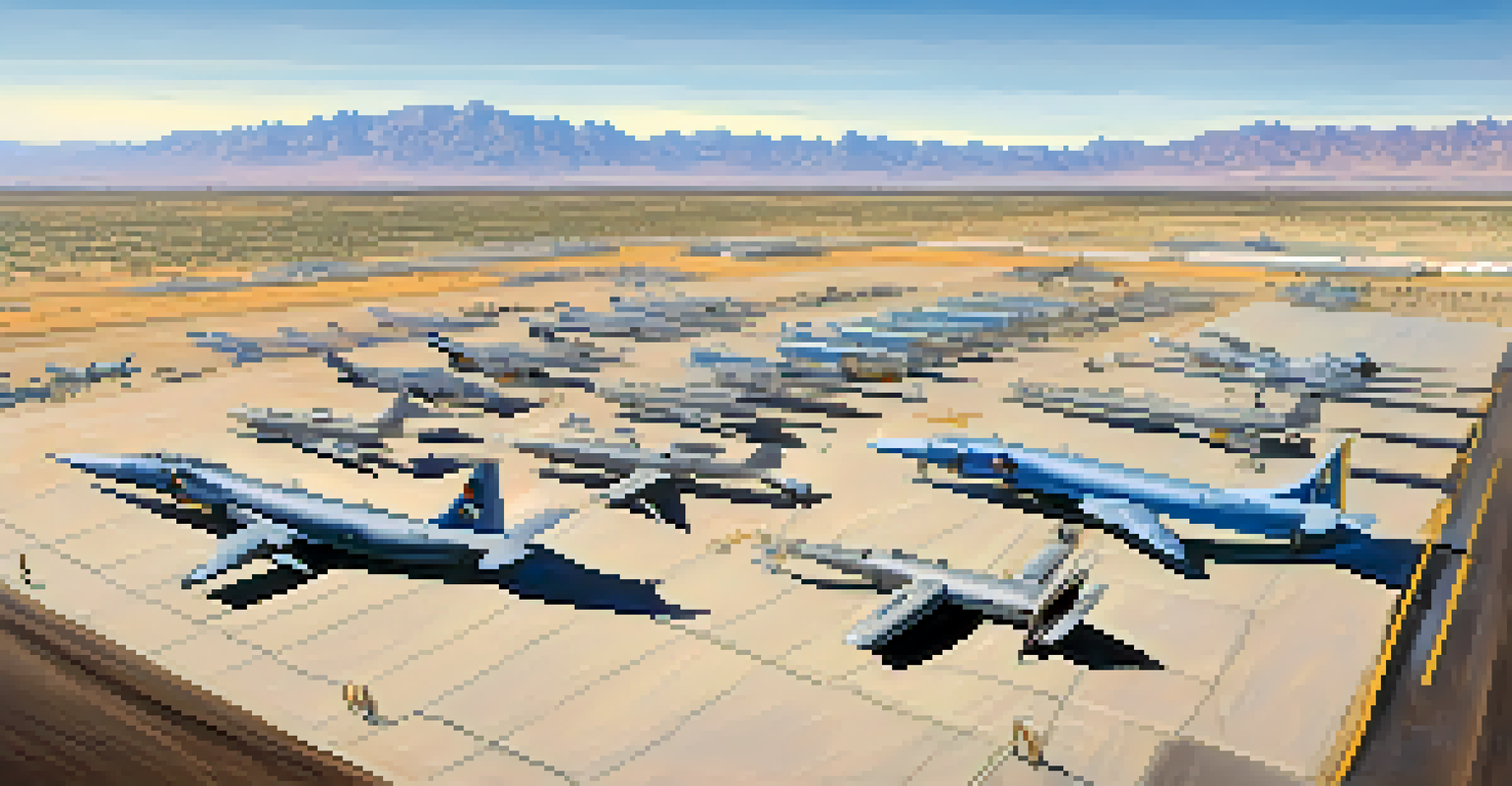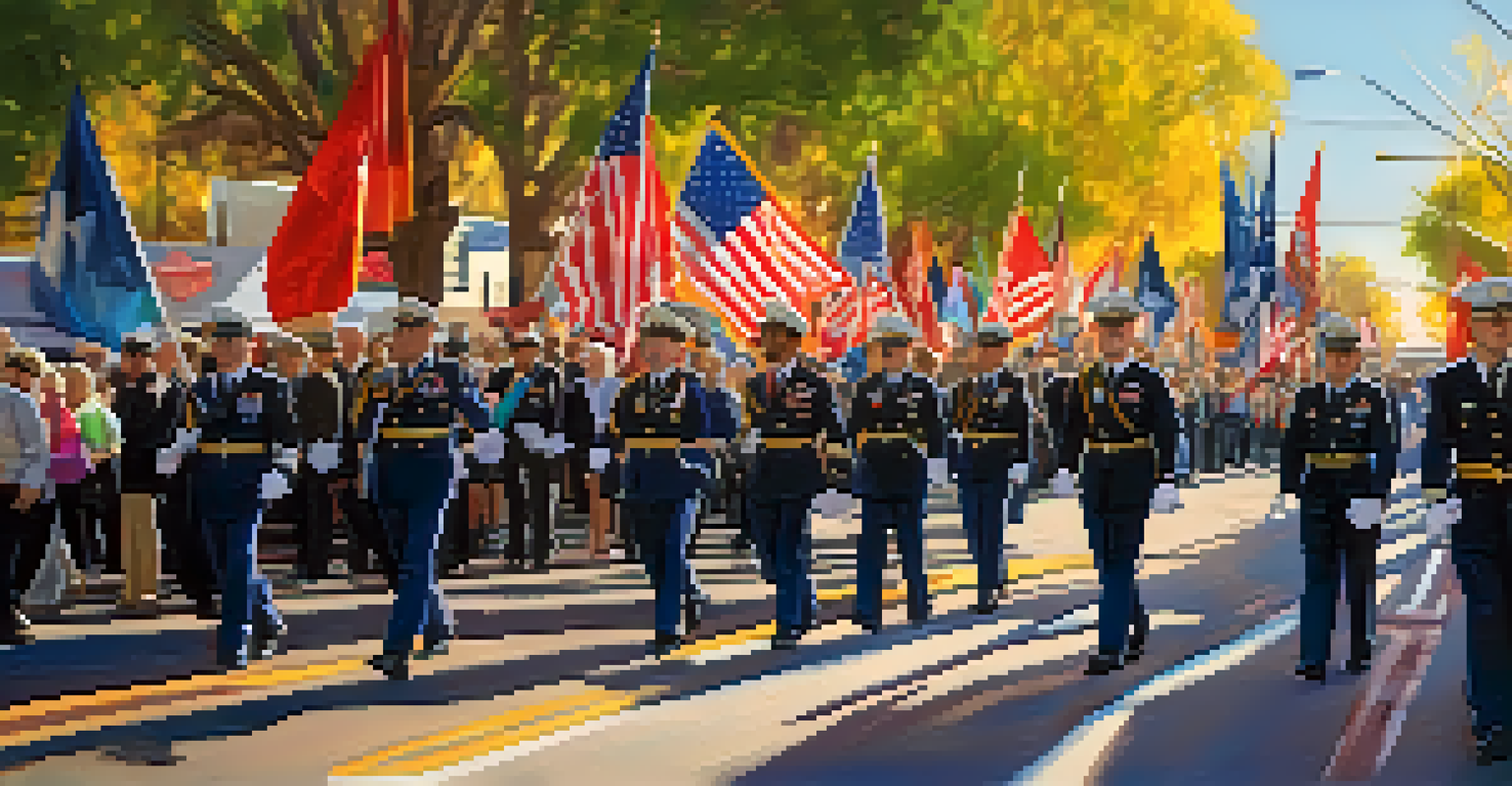Tucson's Military Heritage: A Historical Overview and Impact

The Origins of Tucson's Military Significance
Tucson's military heritage dates back to the mid-19th century, when the U.S. Army established a presence in the region. The city's strategic location made it a key point for protecting the southern border and facilitating communication across the Southwest. Fort Lowell, established in 1866, served not only as a military outpost but also as a community hub, shaping the area’s development.
The soldier is the Army. No army is better than its soldiers.
As tensions rose with Native American tribes and during the Mexican-American War, Tucson became a focal point for military operations. The fort provided essential support for troops and established a sense of security in the region. This early military footprint laid the groundwork for Tucson's ongoing relationship with the armed forces.
Today, remnants of this past can still be seen in historical sites and museums throughout the city. Preserving these stories helps the community honor those who served and acknowledges the role the military played in shaping Tucson's identity.
Key Military Installations in Tucson
One of the most notable installations in Tucson is Davis-Monthan Air Force Base, established in 1925. This base has become essential for tactical air operations and is renowned for its aircraft storage and maintenance facilities. The sheer size and scope of the base make it a major contributor to Tucson’s economy and community.

Davis-Monthan also hosts the Aerospace Maintenance and Regeneration Group (AMARG), often referred to as the 'Boneyard.' Here, retired aircraft await their fate, serving as a fascinating attraction for aviation enthusiasts and a reminder of the military's evolution over time. This unique aspect of military heritage fosters a connection between the community and the armed forces.
Tucson's Rich Military Heritage
Tucson's military significance began in the mid-19th century and has shaped the city's identity and development.
In addition to Davis-Monthan, other facilities like the Tucson Army National Guard and various training centers add to the city’s military landscape. These installations not only support active duty personnel but also engage with local veterans, creating a strong sense of camaraderie within the community.
Impact on Local Economy and Jobs
Tucson's military presence has significantly influenced its economy, creating thousands of jobs and supporting local businesses. The base employs many civilians, while contractors and suppliers flourish due to the demand for military services and equipment. This economic boost is crucial for the city’s growth and sustainability.
In war, there are no unwounded soldiers.
Moreover, the influx of military personnel and their families brings diversity and vibrancy to the local culture. Events, festivals, and community programs foster interactions between service members and civilians, enriching the social fabric of Tucson. This blending of cultures often leads to innovative ideas and new opportunities for collaboration.
In recent years, efforts to diversify the economy have been bolstered by military partnerships, providing new avenues for growth. By leveraging its military heritage, Tucson has positioned itself as a hub for defense contracting and technology, ensuring that the legacy of its military history continues to evolve.
Cultural Contributions of the Military
The military has played a pivotal role in shaping Tucson's cultural landscape, influencing everything from art to music. Local museums often showcase exhibits that highlight military history, featuring artifacts and stories from veterans that celebrate their sacrifices and experiences. These cultural contributions create a deeper understanding of the military's impact on the community.
Annual events like the Tucson Veterans Day Parade and Memorial Day ceremonies serve as poignant reminders of the sacrifices made by service members. They not only honor veterans but also educate the public about military history and its significance. Such events foster a strong sense of community engagement and pride.
Economic Impact of Military Bases
The presence of military installations like Davis-Monthan Air Force Base has created thousands of jobs and supported local businesses.
Furthermore, military families contribute to local traditions and customs, enriching Tucson’s cultural heritage. The blending of military and civilian life has led to a unique community identity that honors its past while embracing a diverse future.
Veteran Support and Services in Tucson
Tucson is home to a myriad of services dedicated to supporting veterans and their families. Organizations like the Southern Arizona VA Health Care System provide essential medical care and resources for those who have served. These facilities are crucial in ensuring that veterans receive the support they need after transitioning to civilian life.
Additionally, local non-profits offer job placement assistance, counseling, and housing support for veterans. These initiatives are vital in helping former service members navigate the challenges they may face, fostering a sense of belonging and community. The collaborative efforts between various organizations highlight the city’s commitment to its veterans.
The presence of veteran support services not only benefits those who have served but also strengthens Tucson as a whole. By prioritizing the well-being of its veterans, the community reinforces a culture of gratitude and respect for military service.
Educational Programs and Military History
Tucson's educational landscape incorporates military history into school curriculums, providing students with a comprehensive understanding of their local heritage. Programs that focus on the significance of military service help foster respect and appreciation for those who have served. This educational approach ensures that future generations are aware of the sacrifices made for their freedoms.
Local museums also host workshops and events aimed at educating the public about Tucson's military past. These interactive experiences engage participants of all ages, making history accessible and relevant. By connecting the community with its military roots, these programs help preserve the legacy of service.
Community Support for Veterans
Tucson offers numerous services and programs to support veterans, reinforcing a culture of gratitude and respect within the community.
Furthermore, partnerships between schools and military organizations create opportunities for mentorship and learning. Veterans often share their experiences, providing students with valuable insights and fostering a sense of responsibility towards their community.
The Future of Tucson's Military Heritage
As Tucson continues to evolve, its military heritage remains a cornerstone of its identity. The city is committed to preserving its historical sites while adapting to the needs of modern military operations. This balance ensures that the past is honored while looking forward to new opportunities.
Efforts to enhance community engagement with military history are also on the rise. Initiatives that promote collaboration between veterans, active-duty personnel, and civilians aim to strengthen ties and foster mutual respect. This open dialogue encourages a deeper understanding of the challenges faced by service members today.

Looking ahead, Tucson's military heritage will undoubtedly continue to shape its community. By embracing its history while fostering innovation, Tucson is well-positioned to honor its legacy while paving the way for a bright future.